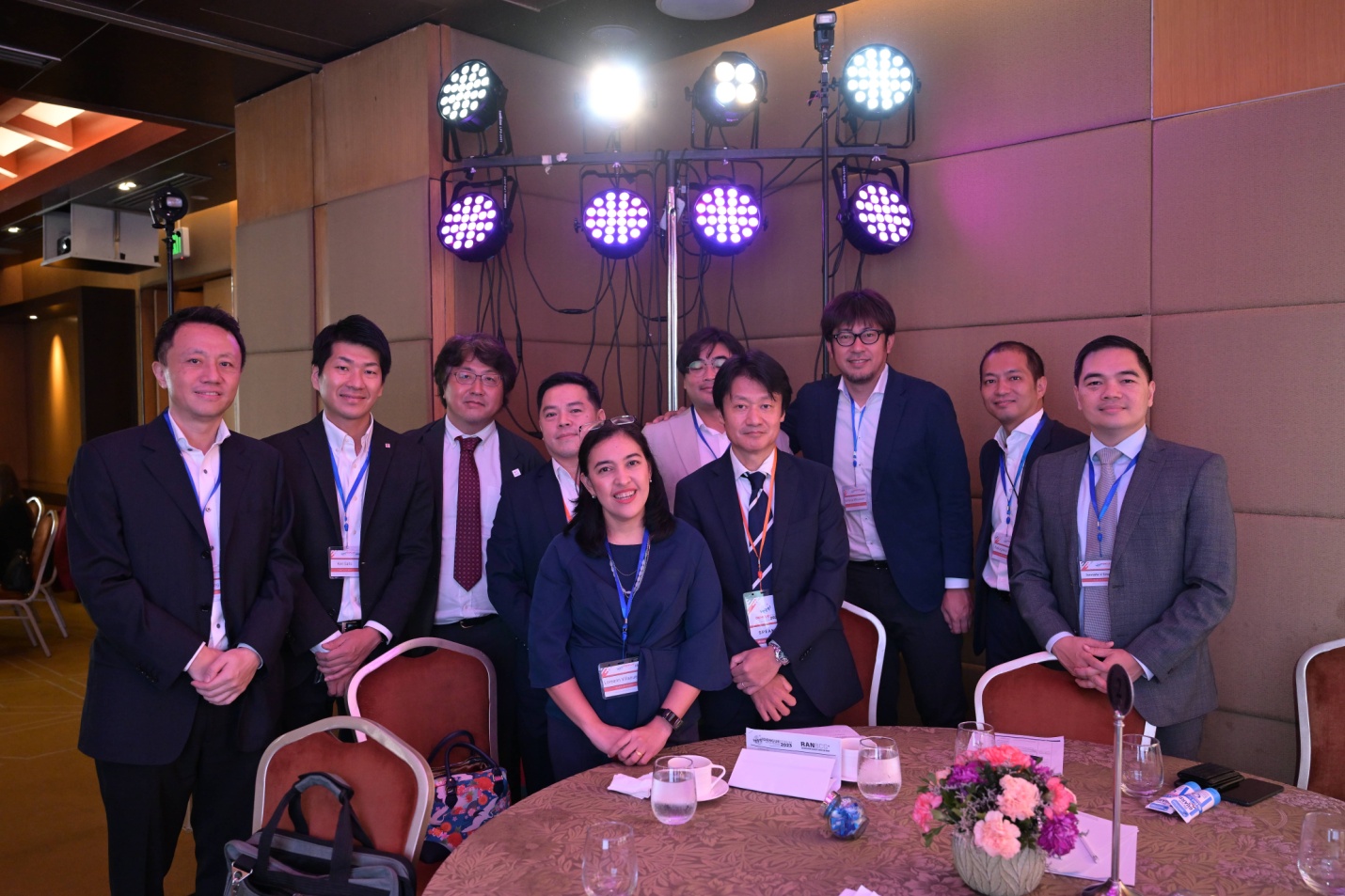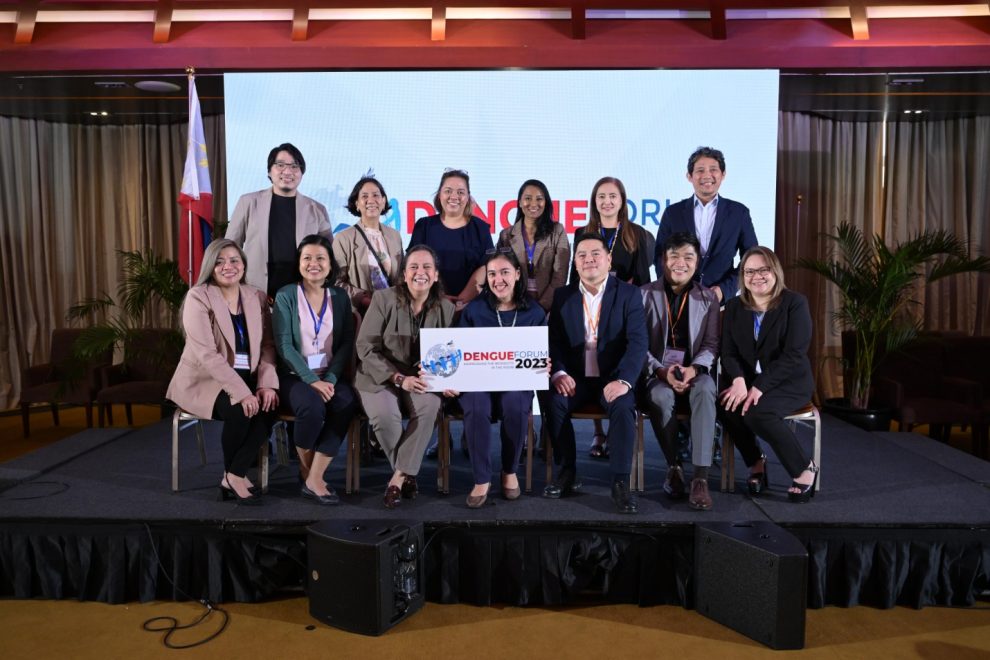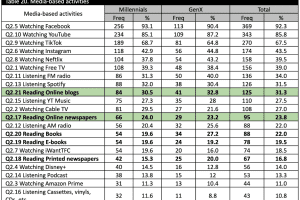The inaugural Dengue Forum titled “Addressing the Mosquito in the Room” held last Wednesday, 27 September, aimed to amplify the conversation on dengue as a public health concern in the Philippines. The event was organized by RiseAboveNow Business Consulting Group (RAN-BCG) and was supported by the Embassy of Japan in the Philippines and the Department of Health (DOH). Present in the said health forum are representatives from local government units, healthcare associations, patient organization and Japanese healthcare companies including Hi-Eisai, Kao Corporation, Taisho and Takeda Healthcare Philippines, Inc. (THPI).
“We consider dengue [to be] an international concern, and we are one with the Philippines in your fight against dengue infections,” said Nihei Daisuke, Minister for Economic Affairs, Embassy of Japan in the Philippines. “I would also like to acknowledge Takeda [Healthcare Philippines], Inc. for actively promoting dengue awareness. I have seen the critical trials of the intervention that you developed, and its efficacy based on the results of your research [is] highly praised.”
This dengue forum came at the right time to revitalize discussion on dengue and establish a robust platform for multi-stakeholder collaboration in addressing the dengue situation in the country. It delved deep into the state of dengue in the country, its far-reaching impact, and current and future prevention and control initiatives.
The burden of dengue in the Philippines
Angelica Garcia, Supervising Health Program Officer at the DOH Epidemiology Bureau, said that dengue is a disease endemic to the Philippines, with cases rising especially during the rainy season. Notably, 70% of annual cases affect those aged 0 to19, and 56% of deaths occur among those aged 9 and below. Dengue with warning signs is the typical presentation, and Dengue 1, among 4 different strains of the virus, is the most common strain detected via PCR.
The financial impact of dengue on patients and their families is significant. Dr. Jose Rene de Grano, President of the Private Hospitals Association of the Philippines, discussed hospitalization costs and complications. He mentioned that PhilHealth provides approximately Php 10,000 for conditions like hemorrhaging, but patient bills can significantly soar to Php 50,000 or more, depending on required monitoring, blood transfusions, and complications.
The pillars of collaborative dengue response
The fight against dengue is guided by five essential pillars: surveillance and preparedness, accurate diagnosis and case management, vector management or mosquito control, health education and advocacy, and outbreak response and preventative interventions. These pillars work in harmony to combat the disease and ensure a healthier future free from the threat of dengue.
“DOH is actively collaborating with the University of the Philippines National Institutes of Health to update their Clinical Practice Guidelines (CPG). We anticipate the final CPG to be released by the end of the year,” noted Dr. Kim Tejano, Medical Officer IV, DOH Disease Prevention and Control Bureau.
Engaging the community was a recurring theme during the discussion. Representatives from the health offices of Quezon City, Pasig City, Caloocan City, and Baguio City shared their best practices. They highlighted the enduring effectiveness of the DOH “5S” strategy, particularly the “search and destroy” component. They underscored the significance of patient education involving the community to ensure dengue prevention and control.
Focusing on the private sector’s role in preventing and controlling dengue, Kao Corporation has emphasized the importance of disease awareness and patient education. “We initiated a collaboration and partnership involving industry, academia, and the government sector in Thailand to promote and encourage individuals to take proactive measures for self-protection,” shared Dr. Nakagawa Takao, Research Manager, Kao Corporation.
Cleo Nodado of Taisho Pharmaceuticals and Dr. Maria Fe Gualberto, pediatrician and medical consultant at Otsuka Solar Philippines, Inc., highlighted that management of dengue can be simple and cost-effective with timely and correct interventions. They emphasized the need to understand clinical issues across different phases of dengue fever for rational case management.
“Dengue remains to be a major public health concern. The fight against global public health diseases is made significantly more achievable through collaborations. Takeda is exploring and forging partnerships with multi-stakeholders in its commitment towards making a difference in patients’ lives by addressing these public health needs,” said Dr. Joy Althea Pabellon, Medical Head of THPI.

With cases on the rise, knowledge and awareness on dengue are our strongest tools in the fight against this “mosquito in the room”. Leading this important discussion were Loreann Villanueva, Country Manager, Takeda Healthcare Philippines, Inc. and Daisuke NIHEI, Minister for Economic Affairs, Embassy of Japan in the Philippines. They were joined by Peng Jiang (President, Taisho Pharmaceutical Philippines, Inc.), Ken Saito (President and General Manager, Otsuka-Solar Philippines, Inc.), Dr. Kazuichiro HORI (Counsellor and Health Attache, Embassy of Japan in the Philippines, Rommel Jun Velasco (Vaccines Franchise Lead, Takeda Healthcare Philippines, Inc.), Jackson Su (Head of Consumer Activations – Vaccines, Takeda), Mitsutoshi Kamiya (Vice-President for Marketing – Consumer Business, Kao Corporation), Nakagawa Takao (Research Manager, Kao Corporation), Jonnahs Singian (President and General Manager, Hi-Eisai Pharmaceutical, Inc.)
Promising innovations for dengue response
With advances in research, technology, and healthcare practices, clinical management innovations can greatly enhance the ability to prevent, diagnose, and treat dengue more effectively.
“For a comprehensive approach to dengue prevention and control, strategies should encompass both vector control and immunization to tackle the burden of dengue disease effectively. Building on concerns related to first-generation vaccines, second-generation dengue vaccines have enhanced design by utilizing the dengue virus as a backbone,” said Dr. Rontgene Solante, Infectious Disease Specialist, San Lazaro Hospital.
The WHO’s Strategic Advisory Group of Experts on Immunization (SAGE) recommends considering the use of TAK003, a live-attenuated tetravalent second-generation dengue vaccine, for introduction in areas with high dengue disease burden and transmission intensity, particularly for children aged 6 to 16, targeting the age-specific peak incidence of dengue-related hospitalizations, which should be 1-2 years earlier.
“There exist other innovative strategies with the potential to prevent and treat dengue infections. Two monoclonal antibodies are currently undergoing testing in the pre-clinical stage: one has shown promising results in preventing bleeding and reducing viral load, while the other has demonstrated the capability to neutralize all four dengue serotypes,” noted Dr. Anna Lisa Ong-Lim, Pediatric Infectious Disease Expert, at Philippine General Hospital.
Government bodies, private sector entities, and dedicated stakeholders have recognized the need for concerted efforts in the prevention, management, and control of dengue. The ceremonial signing of the Collaborative Response Framework is a clear testament to the unwavering commitment of all stakeholders involved in combating this pressing health issue. You can take action and fight the mosquito in the room.












